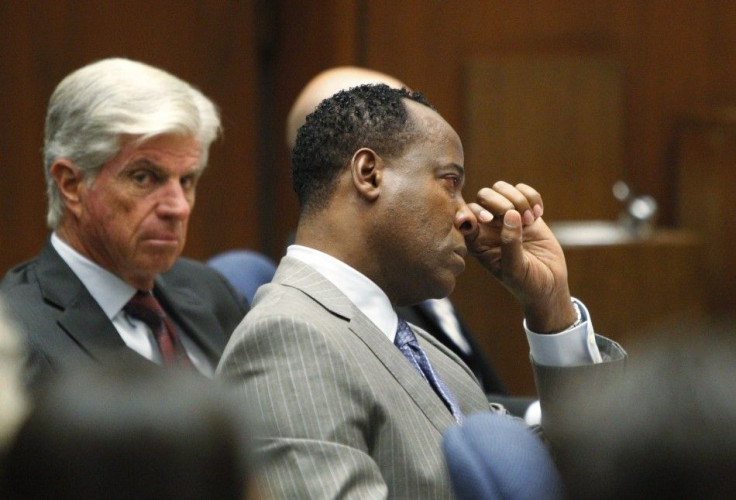Jackson Eoctor Eelayed Calling Ambulance, Trial Hears

Michael Jackson's doctor called the singer's personal assistant rather than an ambulance when he realized the Thriller star had stopped breathing in June 2009, a Los Angeles court heard on Wednesday.
And after the superstar was pronounced dead hours later in hospital, Dr. Conrad Murray wanted to return to Jackson's house and find some cream that the singer wouldn't want the world to know about, personal assistant Michael Williams testified.
Williams was testifying for the prosecution about the chaotic morning of Jackson's death on the second day of Murray's involuntary manslaughter trial.
Prosecutors claim that Murray not only caused Jackson's death by giving him the powerful anesthetic propofol as a sleep aid, but that he also failed to get timely medical assistance after finding Jackson unresponsive at 11:56 a.m. on June 25, 2009.
Murray has admitted giving Jackson propofol as a sleep aid. But his attorneys claim Jackson gave himself an extra dose of the anesthetic, as well as other prescription drugs, and that was what caused his sudden death. Murray faces four years in prison if convicted.
On June 25, the call for an ambulance was not made until 12:20 p.m., when a security guard at the mansion, where Jackson lay lifeless in his bedroom, dialed emergency services.
'FRANTIC' SCENE
Prosecutors said Murray's first attempt to get help was at 12:12 p.m. when he called Williams and left a message saying, Call me right away.
Williams, who was at home, testified that he called Murray back at 12:15 p.m., and was told Jackson had suffered a bad reaction.
When I hear a 'bad reaction,' I wouldn't think anything fatal, personally, and I wasn't asked to call 911, Williams said. He said Murray told him to get to Jackson's mansion immediately and also to send up a security guard.
Williams testified that when he arrived at the Jackson mansion, the ambulance was already there.
It was real frantic. I got there when the gurney (carrying Jackson) was coming down from the bedroom, Williams said.
Williams said that in the months before the death, it was normal for oxygen canisters to be kept at the mansion, and that Murray would take them to Jackson's bedroom.
The assistant said that at the hospital where Jackson was later pronounced dead, Murray made a request that seemed strange.
He said, 'There's some cream in Michael's room that he wouldn't want the world to know about,' and he requested that I or someone would give him a ride back to the house, so that he could get the cream, said Williams.
Prosecutors have suggested that Murray probably wanted to return there to remove evidence of the drugs that he had given Jackson before he died.
Earlier on Wednesday, a lawyer who drafted Murray's contract to provide medical services for Jackson said the doctor had assured her multiple times in the days before his death that the singer's health was good.
Dr. Murray told me repeatedly that Michael Jackson was perfectly healthy, in excellent condition, Los Angeles attorney Kathy Jorrie said on the witness stand.
© Copyright Thomson Reuters 2024. All rights reserved.





















